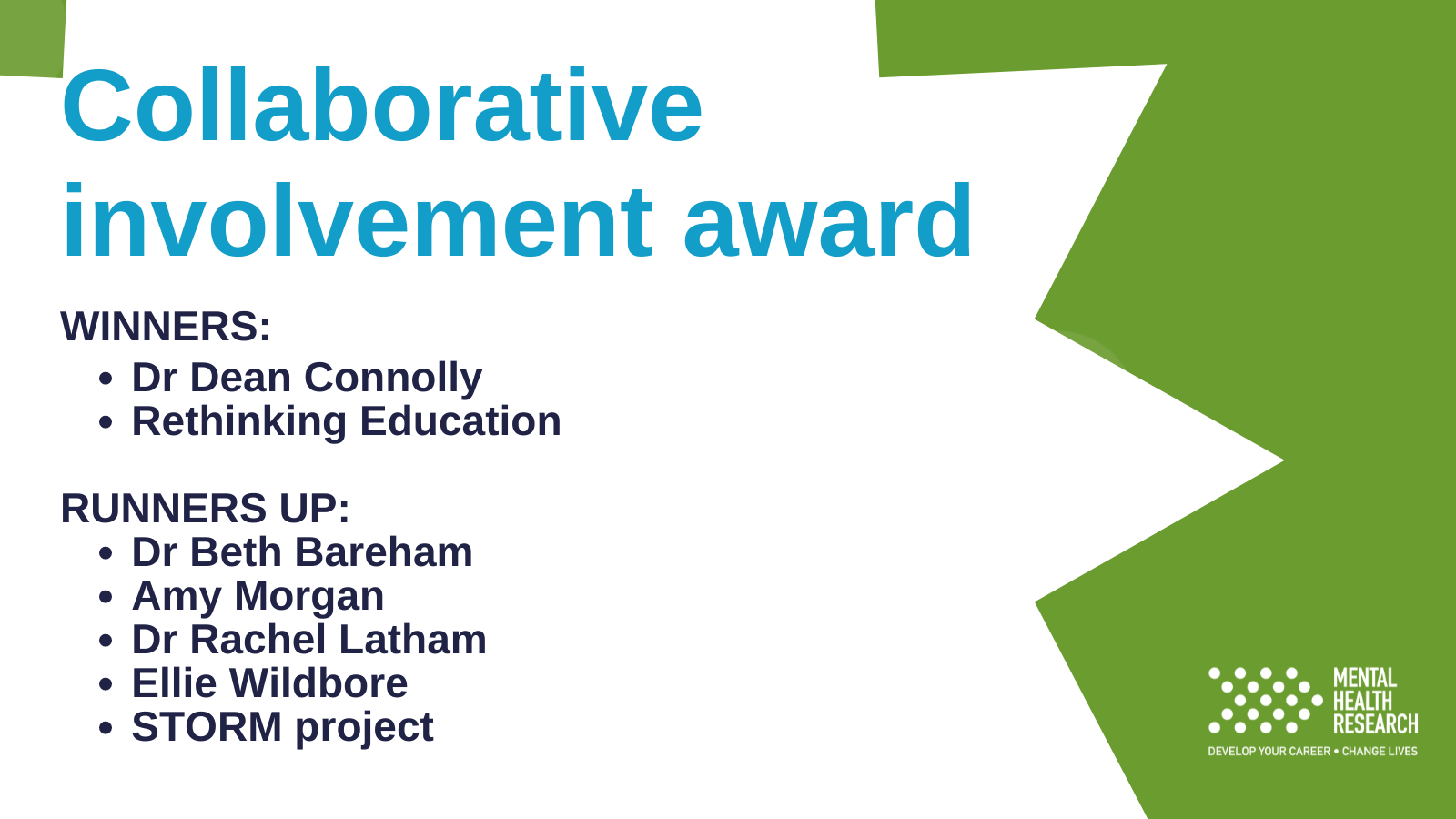
Judges awarded top prizes to Dr Dean Connolly and the ‘Rethinking Education: lessons from lockdown’ Special Interest Research Group for the Collaborative Involvement of patients and public prize. In a competitive field, judges made five other runner up awards to projects which also had outstanding PPI.
The winning projects – all demonstrating exemplary PPI in different ways – pick out just a few of the wide range of urgent issues that mental health researchers are addressing in their work: alcohol use, violence, stigma, school experiences, experiences in sexual and gender diverse communities, and experiences of mental health professionals during COVID.
Rethinking Education group was established by a parent with lived experience and has worked in a range of creative ways with young people and their families, including collaboration on a recent research paper which was driven by families and young people’s views. The panel were extremely impressed by the genuine innovation and collaboration in how they work together.
Dr Dean Connolly (Oxford Brookes) has been integral to the collaborative involvement of transgender and non-binary people throughout his community-led research project investigating alcohol use within UK transgender and non-binary communities. The project really stood out for its collaborative approach but judges were also excited to see the involvement of a lived experience artist to ensure effective communication of the research findings.
Overall there were some great example of PPI here. Those that really stood out often included peer researchers, involved PPI representatives throughout the process, carefully considered training needs of PPI representatives, and often used creative approaches to involvement and dissemination.
– Judging panel
Judges also recognised five other nominated projects as ‘highly commended’.
- Dr Beth Bareham (Newcastle) for her work focusing on older people and co-occurring alcohol and mental health problems. Beth trained up an advocacy group from Drink Wise Age Well to work as peer researchers to develop services to better meet the needs of the patient group.
- Amy Morgan (KCL) for her work on the ‘Schools Training to Enhance support for LGBT+ young People’ (STEP) study, which looks at how schools could better support sexual and gender diverse young people who experience disproportionate stigma. Amy’s work stood out for the way that young people were supported in their roles – through training in research methods and the peer debrief sessions.
- Dr Rachel Latham (Reading) for her work focusing on the impacts of violence during adolesence on the mental health of survivors. The project was distinctive in how it involved young people with lived experience of mental health problems in the analysis and write up of secondary data.
- Ellie Wildbore and CARE COVID (Sheffield)- a research study into care giving and receiving in the first lockdown, which was co-led by a lived experience researcher.
- Lisa Richardson, Katrina Scior, Christine Burke and the Self Advocate Expert Panel for the STORM study (UCL) – an evaluation of a psychosocial intervention for stigma in intellectual disabilities.
